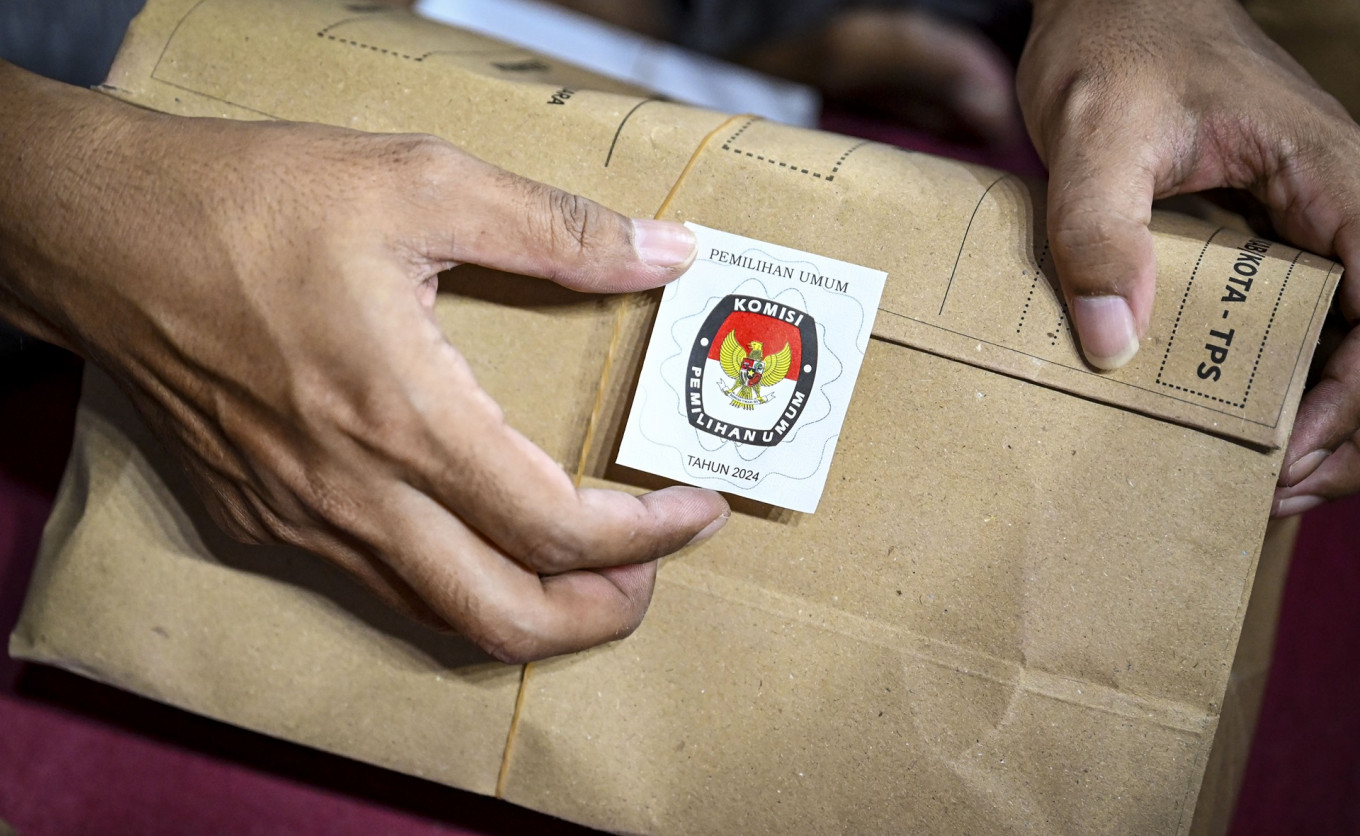Popular Reads
Top Results
Can't find what you're looking for?
View all search resultsPopular Reads
Top Results
Can't find what you're looking for?
View all search resultsMixed results
Based on the quick count results, everyone could expect that Gerindra Party chairman and incumbent Defense Minister Prabowo Subianto will be the winner of this year's presidential election and that the Indonesian Democratic Party of Struggle (PDI-P) will win the legislative election and most likely control the House of Representatives.
Change text size
Gift Premium Articles
to Anyone
T
hanks to the quick count method conducted by independent pollsters, only hours after the Feb. 14 balloting, voters could get a sense of what the final outcome of this year's general election would look like.
Based on the quick count results, everyone could expect incumbent Defense Minister Prabowo Subianto to be the winner of the presidential election and the Indonesian Democratic Party of Struggle (PDI-P) to win the legislative election and most likely control the House of Representatives.
But only on Wednesday could we finally see the scale and magnitude of those wins, and in the case of the presidential election, finally gauge to what extent Prabowo has upended some established practices in post-New Order electoral politics.
The quick count correctly predicted that Prabowo would get 58 percent of the votes, and the official result announced by the General Election Commission (KPU) on Wednesday confirmed that.
The KPU's final tally can give us details on how sweeping the victory was.
Based on the KPU's final tally, Prabowo is the only candidate in the reform era presidential elections who could pull off a win in three battleground provinces; West, Central and East Java in the first round of election. (Fellow Army general Susilo Bambang Yudhoyono achieved the feat in 2004 but only in the second round).
Not even President Joko "Jokowi" Widodo, arguably the most popular politician in the past two decades, could win West Java in the presidential election. In fact, Jokowi lost twice in 2014 and 2019 to none other than Prabowo himself.
Prabowo could even score a win in Jakarta, the home turf of its former governor and opposition presidential candidate Anies Baswedan. In Jakarta, Prabowo gained 2.6 million votes, leading with a slim margin of about 40,000 votes. A slim margin indeed, but impressive nevertheless.
As for Anies, never before in a reform era presidential election has a runner-up only scored a meager win in two provinces; Aceh and West Sumatra.
In 2019, even when President Jokowi was at the height of his political power and was on track to win a second term, Prabowo could snatch victories from the jaws of defeat in 12 provinces.
PDI-P presidential candidate Ganjar Pranowo suffered an even worse fate than Anies. Not only was he crushed by Prabowo on his home turf in Central Java, where he served as governor for two terms, he even lost Bali, the province that has perennially been the stronghold of the PDI-P.
In Central Java, Ganjar, who was once touted by Jokowi himself to be his successor, could only gain 7.8 million votes, while Prabowo garnered more than 12 million.
In Bali, Prabowo came out top, beating Ganjar by a margin of more than 300,000 votes.
Prabowo's good luck in the presidential race, however, did not rub off on the Gerindra Party, as the final KPU tally put the party in third position in the legislative election with a little over 13 percent of the votes.
For the first time, the political party of the winner in the presidential election failed to capitalize on the so-called coat-tail effect, a situation that could complicate Prabowo's efforts for an effective government as he has to cobble together a grand coalition at the House with only meager political capital.
The good news for Prabowo is that he still has an outgoing President who not only has helped him tremendously in the election but will continue to lend a hand in the coming weeks and months.
As Prabowo deals with possible legal challenge at the Constitutional Court and an inquiry at the House on election irregularities, that is one thing that he can definitely count on.











